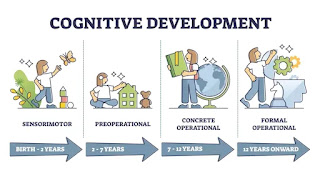Jean Piaget, a renowned Swiss psychologist, introduced groundbreaking theories about cognitive development that continue to influence education today. His work led to the creation of Piagetian programs, which focus on fostering intellectual growth by aligning teaching strategies with a child’s developmental stage. These programs emphasize active learning, discovery, and problem-solving, making them a cornerstone for progressive education.
In this article, we’ll explore what Piagetian programs are, their core principles, their implementation in education, and how they can transform learning outcomes for children.
What Are Piagetian Programs?
Piagetian programs are educational approaches rooted in Jean Piaget’s theory of cognitive development. Piaget believed that children go through distinct developmental stages, each characterized by unique ways of thinking and understanding the world. These stages are:
- Sensorimotor Stage (0-2 years): Infants learn through sensory experiences and actions.
- Preoperational Stage (2-7 years): Children develop symbolic thinking but struggle with logic and perspective-taking.
- Concrete Operational Stage (7-11 years): Logical thinking emerges, and children can solve problems involving concrete objects.
- Formal Operational Stage (12 years and up): Abstract reasoning and hypothetical thinking develop.
Piagetian programs leverage these stages to create age-appropriate learning environments that nurture cognitive growth.
Core Principles of Piagetian Programs
Piagetian programs operate on several foundational principles:
1. Active Learning
Children learn best when they actively engage with their environment. Instead of passive instruction, these programs encourage hands-on activities, experimentation, and exploration.
2. Developmental Readiness
Teaching methods are tailored to the child’s current cognitive stage. This ensures that tasks are neither too simple nor too complex, fostering optimal learning.
3. Discovery-Based Learning
Rather than memorizing facts, students are encouraged to discover concepts independently. This builds critical thinking and problem-solving skills.
4. Social Interaction
Piaget believed that peer interaction plays a crucial role in cognitive development. Group activities and discussions are integral to Piagetian programs.
5. Constructivism
Learning is seen as a process of constructing knowledge. Children actively build their understanding of the world based on their experiences and prior knowledge.
Implementation of Piagetian Programs in Education
1. Curriculum Design
Piagetian programs focus on age-appropriate, inquiry-based curricula. For example:
- In the Preoperational Stage, activities may include imaginative play, storytelling, and hands-on art projects.
- In the Concrete Operational Stage, educators can introduce experiments, puzzles, and problem-solving tasks.
- In the Formal Operational Stage, students might tackle debates, hypothetical scenarios, and abstract reasoning exercises.
2. Classroom Environment
Classrooms in Piagetian programs are designed to promote exploration and autonomy. You’ll often see:
- Learning centers with diverse materials for hands-on activities.
- Flexible seating arrangements to encourage collaboration.
- Tools like manipulatives, puzzles, and science kits.
3. Role of the Teacher
Teachers act as facilitators rather than lecturers. Their role includes:
- Observing students to understand their developmental stage.
- Designing activities that challenge students while supporting growth.
- Encouraging curiosity and guiding discovery without providing direct answers.
4. Assessment Methods
Traditional tests are less emphasized in Piagetian programs. Instead, assessment focuses on:
- Observing problem-solving processes.
- Evaluating participation in group activities.
- Reviewing creative projects and portfolios.
Examples of Piagetian Programs
Montessori Education
Though not exclusively Piagetian, Montessori programs share many similarities, such as hands-on learning and respect for developmental readiness.
Reggio Emilia Approach
This child-centered approach aligns with Piaget’s emphasis on discovery-based learning and social interaction.
Inquiry-Based Science Programs
Science curricula inspired by Piaget often include experiments where students hypothesize, test, and draw conclusions.
Benefits of Piagetian Programs
1. Personalized Learning
By aligning with a child’s developmental stage, Piagetian programs provide a personalized learning experience that fosters intellectual growth.
2. Enhanced Problem-Solving Skills
Discovery-based learning helps children develop critical thinking and problem-solving abilities.
3. Lifelong Curiosity
Encouraging exploration and inquiry instills a love of learning that extends beyond the classroom.
4. Social and Emotional Development
Collaborative activities promote teamwork, empathy, and communication skills.
Criticisms and Challenges
While Piagetian programs have many advantages, they are not without challenges:
- Complexity of Implementation: Designing activities that align with developmental stages can be time-consuming.
- Individual Variability: Children develop at different rates, making it difficult to generalize stages.
- Limited Focus on Content Knowledge: Some critics argue that these programs may not emphasize factual knowledge as strongly as traditional methods.
How Piagetian Programs Support 21st-Century Skills?
In today’s world, skills like critical thinking, creativity, and adaptability are more important than ever. Piagetian programs align perfectly with these needs by:
- Encouraging innovation through hands-on learning.
- Fostering collaboration in group settings.
- Developing analytical skills through problem-solving tasks.
Conclusion
Piagetian programs offer a powerful framework for education by prioritizing developmental readiness, active learning, and discovery. Whether implemented in early childhood education or adapted for older students, these programs create a foundation for intellectual and emotional growth.
By integrating Piagetian principles into modern education, we can equip children with the skills and curiosity they need to thrive in an ever-changing world.
For parents and educators interested in adopting Piagetian strategies, the key is to focus on the child’s developmental stage, create engaging learning environments, and encourage exploration. With these tools, you can unlock the potential of every learner.

